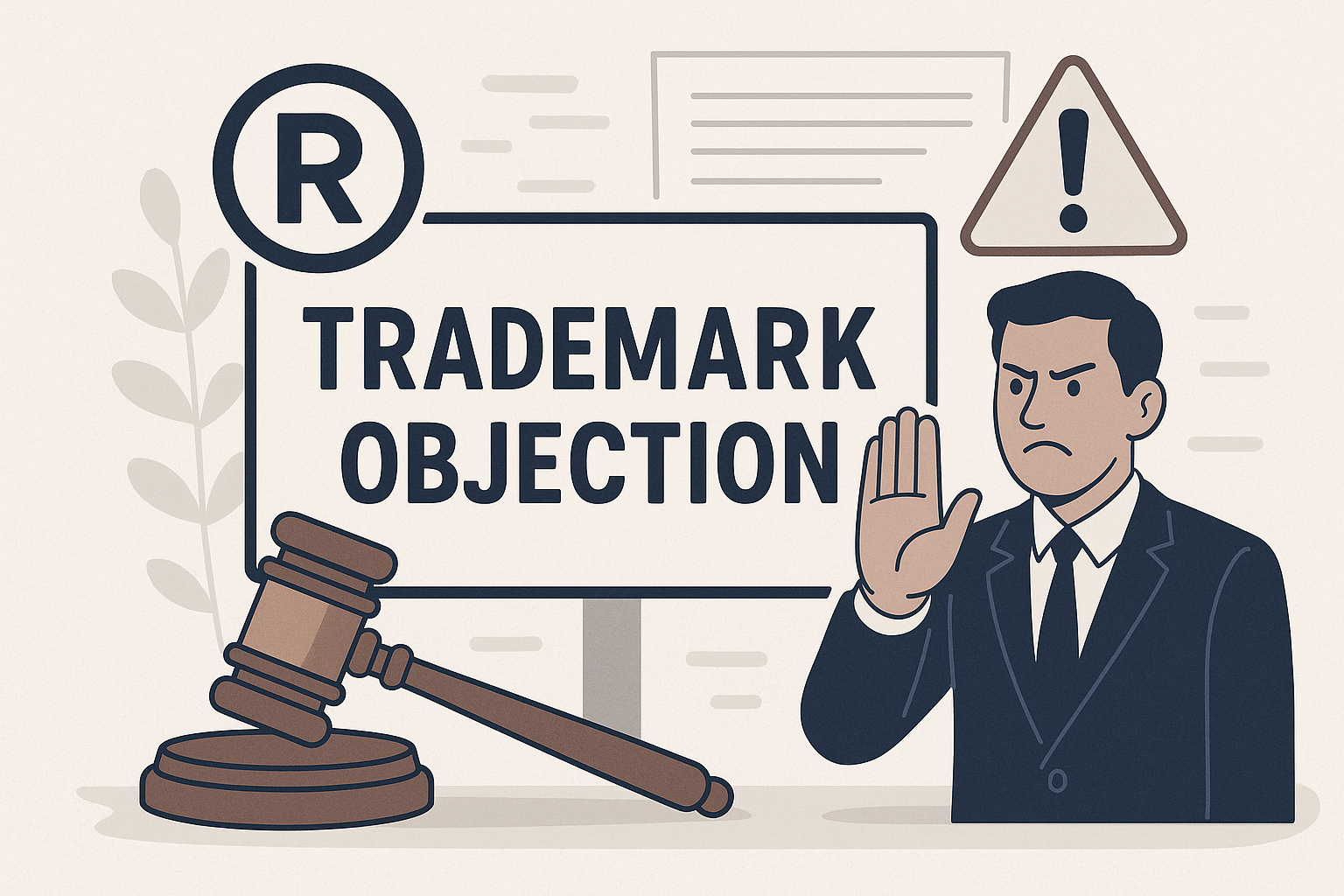Trademark Objection Process in India
Respond to Trademark Objections Professionally — Protect Your Brand with TaxClue
After you file a trademark application, the Trademark Registry examines it and may raise certain objections if the mark conflicts with existing ones or doesn’t comply with the law.
Receiving a trademark objection is not a rejection — it simply means that the registry seeks clarification or legal justification.
At TaxClue, our experts help you draft and file a strong response, ensuring your brand moves forward toward registration.
5 Star Google Rating
1-day Guaranteed*
Experienced Experts
What is a Trademark Objection?
A trademark objection is an initial stage in the registration process where the Trademark Examiner reviews your application and raises issues that need to be clarified, corrected, or defended.
Objections are issued under Section 9 and Section 11 of the Trade Marks Act, 1999, and appear in the Examination Report published by the Registry.
If you fail to respond within the prescribed time (usually 30 days from receipt), your application may be abandoned.

Types of Trademark
- Word Mark – Name or text-based brand identity
- Logo / Device Mark – Graphical symbol or design
- Service Mark – Identifies a service provider
- Collective Mark – Used by organizations or associations
- Certification Mark – Certifies standard or quality
- Shape / Sound Mark – Unique product shapes or sounds
Who can Apply?
- Individuals and proprietors
- Startups and SMEs
- LLPs and partnership firms
- Private/Public limited companies
- Trusts, societies, and associations
- Indian or foreign entities
Common Reasons for Trademark Objection
- Similarity with Existing Mark (Section 11) - The proposed mark is identical or similar to an already registered or applied trademark.
- Lack of Distinctiveness (Section 9) - The mark is too generic, descriptive, or common and fails to distinguish goods/services.
- Incorrect Class or Description - The goods/services are not properly described or filed in the wrong class.
- Incomplete Information - Missing applicant details, unclear logo, or errors in application form.
- Deceptive or Misleading Marks - Marks that may confuse or mislead consumers about the nature or quality of goods.
- Use of Prohibited Words or Symbols - Contains offensive, religious, or government-related symbols.
Step-by-Step Trademark Objection Process
- Examination Report Issued
- Review by TaxClue Experts
- Drafting and Filing the Reply
- Hearing (if required)
- Acceptance or Rejection
Timeline of the Objection Process
- Examination Report Issued - 3–6 months after filing
- Filing of Objection Reply - Within 30 days of issue
- Hearing & Decision - 3–12 months depending on workload
- Publication in Journal - After acceptance by examiner
Documents Required to File an Objection Reply
Copy of Examination Report
Supporting documents – MSME certificate, domain registration, or company certificate
Trademark application number
Reply draft (prepared by TaxClue team)
Brand usage proof – invoices, website screenshots, brochures, advertisements
Power of Attorney (we prepare it for you)
Why Choose TaxClue ?
We combine expert advice with digital convenience — ensuring a smooth experience from start to finish.
End-to-End Registration Support
From name approval to incorporation certificate.
Transparent Pricing
No hidden charges, no surprises.
Post-Incorporation Guidance
GST, accounting, and compliance setup.
Dedicated Compliance Expert
One-point contact for your entire process.
-
FAQ
Got Questions?
We've Got Answers!
What is the time limit to respond to a trademark objection?
You must file a reply within 30 days from the date of receipt of the examination report.
Can I handle a trademark objection myself?
You can, but a professional reply drafted by experts ensures proper legal reasoning and minimizes risk of refusal.
What happens if I miss the 30-day deadline?
Your application will be abandoned and cannot be revived. You’ll have to refile.
Will my mark be rejected if objection is raised?
Not necessarily. A well-drafted reply and representation can often lead to acceptance and publication.
Can I appeal a refusal?
Yes, you can appeal before the High Court or IP Division against a final refusal order.
Is there a fee for filing a reply?
Yes, professional service charges apply for drafting and filing, but there’s no government fee for filing a reply.
How long does it take to get a decision after filing a reply?
Usually within 3–12 months, depending on the complexity and examiner’s workload.